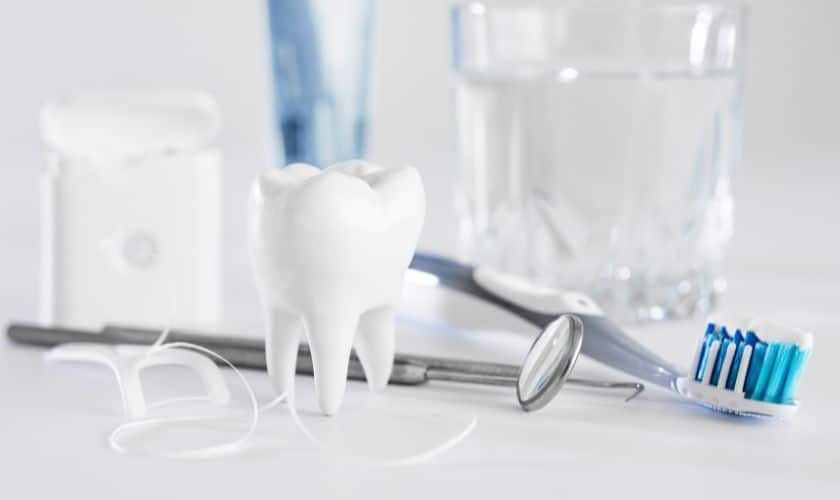Visit 7 North Dental Today Or Call: 602-230-0811
Is Water a Good Source of Fluoride?

The presence of fluoride in water has been a topic of controversy. Fluoride is a mineral well-known for its function in oral health. This article aims to examine the complexities of water fluoridation, including its advantages, drawbacks, and worldwide viewpoints.
Introduction
The important influence of fluoride, a naturally occurring mineral, on oral health has come to light. Fluoride has grown to be essential to dental health, strengthening tooth enamel and preventing cavities. Water is one of the main sources of fluoride, and fluoridating water is a frequently used technique to improve the oral health of the general public.
What is Water Fluoridation?
Water fluoridation carefully adds fluoride to public water sources to maximize its advantages for tooth health. This method has spread worldwide since its inception in the middle of the 20th century. Providing a consistent and preventative approach to dental treatment is the main goal, particularly in areas where access to dental services is restricted.
Natural Fluoride vs. Added Fluoride
Although natural fluoride may be found in many types of water, the amounts may not always be high enough to provide advantages for oral health. To achieve the intended effect on dental health, water fluoridation supplements natural fluoride levels uniformly and controlled. When assessing the effectiveness of water fluoridation, it is essential to comprehend the distinctions between naturally occurring and added fluoride.
Benefits of Fluoride in Water
Fluoride additions to water sources have been shown to have a significant positive impact on dental health. According to studies, fluoridated water populations had much lower rates of cavities and tooth decay. Water-borne fluoride availability is particularly beneficial for persons with varying socioeconomic backgrounds.
Controversies Surrounding Water Fluoridation
Water fluoridation has been a contentious practice while being widely accepted. Critics point to possible health hazards, including dental fluorosis, and express doubts about the treatment’s overall efficacy. Nonetheless, there is broad scientific agreement that fluoridating water improves the oral health of the general populace.
Fluoride Levels and Safety Standards
To maximize benefits and minimize hazards, it is essential to establish and maintain the right amounts of fluoride in water. Regulators establish suggested thresholds and stress the need to follow safety guidelines to avoid negative consequences from consuming too much fluoride.
Fluoride in Bottled Water vs. Tap Water
Customers frequently inquire about the fluoride levels in various water sources, which sparks conversations on the differences between tap and bottled water. Comprehending these distinctions is vital for those who want to regulate their fluoride use proficiently and make knowledgeable decisions about their drinking water.
Fluoride Alternatives and Supplements
Other fluoride sources outside fluoridating water, such as certain meals and dental items. To ensure that everyone has access to fluoride’s dental advantages, supplements are now available for those who need to consume more of the mineral.
Global Perspectives on Water Fluoridation
Different nations take different stances on water fluoridation; some see it as a public health success, while others have given up on the practice or are still doubtful. Analyzing these various points of view offers insightful information on the advantages and disadvantages of water fluoridation initiatives.
Effects of Fluoride on Children vs. Adults
The way that various age groups react to fluoride exposure might vary. It’s important to comprehend the age-specific factors, especially when it comes to children’s dental health because fluoride has a big effect on growing teeth.
Environmental Impact of Water Fluoridation
The effects of water fluoridation on the ecosystem cannot be disregarded, even though human health is frequently the main concern. Achieving a balance between maximizing dental benefits and reducing environmental effects is crucial for the ethical use of fluoride.
How to Test Fluoride Levels in Water
To guarantee that safety regulations are followed, fluoride levels in water must be tested regularly. With the availability of many testing techniques, communities, and individuals may efficiently monitor and control the amount of fluoride they consume.
Public Awareness and Education Programs
A key element in the effectiveness of water fluoridation is educating the public about its advantages and safety. Government efforts and awareness campaigns facilitate public trust and awareness of the benefits of fluoride for dental health.
Expert Opinions on Water Fluoridation
Expert opinions from dentistry and public health offer a thorough grasp of the importance of fluoridating water. Experts’ Opinions help shape procedures and policies that support community-wide oral health at its best.
Conclusion
In conclusion, water fluoridation is a tried-and-true strategy for improving oral health across the population, including the residents of Phoenix. Notwithstanding disagreements, the scientific community agrees that fluoride has a beneficial effect, which makes it an inexpensive and easily available resource for keeping teeth healthy. If you’re in Phoenix, consulting with a local dentist, such as a skilled Phoenix dentist, can provide personalized guidance on maintaining optimal oral health and ensuring the effectiveness of water fluoridation in promoting strong and healthy teeth.
Read Also: Why Laser Treatment Is Best for Gum Disease – Phoenix, AZ
Frequently Asked Questions (FAQs)
Controlled fluoride levels in water are safe and good for oral health.
Yes, fluoride may be found in various foods and dental items, offering additional sources to help maintain good oral health.
Dental fluorosis and other health problems can result from consuming too much fluoride. On the other hand, these hazards are reduced when suggested levels are followed.
It is advised to do routine testing to ensure safety regulations are followed. The frequency is determined by the features of the water supply and local laws.
Although the focus is on human health, an ecological effect must also be considered. The ethical use of fluoride seeks to balance environmental concerns and dental benefits.



